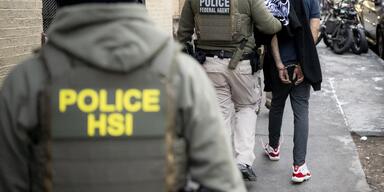
As reported in several news outlets last week (including the Washington Post, the City Paper, and DCist), the U.S. Bankruptcy Court for the District of Columbia recently approved a significant settlement for tenants at a property that was formerly owned by Sanford Capital. Legal Aid represented thirty-two tenants who will receive substantial compensation, totaling over $407,000, for having to endure severe housing code violations and security risks when Sanford Capital owned the property.
The tenants live at a 76-unit property in Ward 5 on Franklin Street that Sanford owned from 2012 through March 2018. Throughout those years, management was unresponsive to the tenants’ concern about the severe rat, roach, and bedbug infestations, inconsistent and broken heating systems, serious water leaks and water damage throughout the building, and more. The tenants were also forced to endure dangerous security risks: the front doors and locks were constantly broken, and management refused to repair units and left them vacant after they were destroyed by a fire, making tenants feel unsafe and insecure in their own homes.
In September 2017, the LLC through which Sanford owned the property filed for bankruptcy even though it had more than enough equity in the property to pay all of its outstanding debts. This tactic, an effort by Sanford to avoid complying with the tenants’ rights under the Tenant Opportunity to Purchase Act (TOPA), was familiar to Legal Aid; Sanford engaged in similar actions at Terrace Manor, where we, along with Bread for the City, and Arnold and Porter, represented a group of tenants in their efforts to recoup rent they overpaid when their homes were in deplorable conditions, and to ensure that they had safe and habitable housing for the future.
Sanford pursued the same tactic here with the Franklin Street properties. But that didn’t discourage Legal Aid or the tenants we represented from fighting for their rights and making sure Sanford sold the property to someone who would repair, maintain, and improve it. With the help of pro bono counsel Jeffrey Sherman, Legal Aid represented the tenants in bankruptcy court to challenge the sale on the basis that the property could not be transferred while Sanford was out of compliance with DC’s housing code.
As a result, Legal Aid and the tenants were able to negotiate a settlement with the prospective purchaser. The prospective purchaser agreed to make much needed repairs to the units and common areas of the building, including replacing the washers and dryers in the laundry room; conducting building-wide exterminations for mice, roaches and bedbugs; replacing broken mailboxes; and providing a 24-hour maintenance line. The purchaser also agreed to replace the building’s exterior doors, install call boxes, and ensure there is adequate lighting on the exterior of the property. On top of that, the purchaser agreed to not take any extraordinary rent increases on the tenants through the hardship petition, substantial rehabilitation petition, or capital improvement petition process for twenty (20) years, ensuring the building’s affordability in the long term.
At the same time these negotiations were going on, Legal Aid, with the assistance of organizers from the Latino Economic Development Center, helped the tenants file claims against Sanford in the bankruptcy action. The tenants had been paying their rent to Sanford for years while living in terrible conditions, and they were entitled to some of that money back. Tenant Organizer Rob Wohl helped Legal Aid ensure as many tenants as possible knew about their rights and filed timely claims.
After negotiating with Sanford and working with the Office of the Attorney General (OAG), which was also litigating claims against Sanford based on its violations of the DC Housing Code, we reached a joint settlement. Legal Aid’s 32 clients received a total of over $407,000 for the years they had been living in deplorable conditions. At the same time, OAG received over $700,000 for 123 unrepresented current and former Sanford tenants. In total, Sanford is paying over $1.1 million in restitution to tenants it harmed.
Legal Aid’s work is funded in part by a grant from the D.C. Bar Foundation that supports the preservation of safe and affordable housing in neighborhoods of choice for incumbent District residents.




